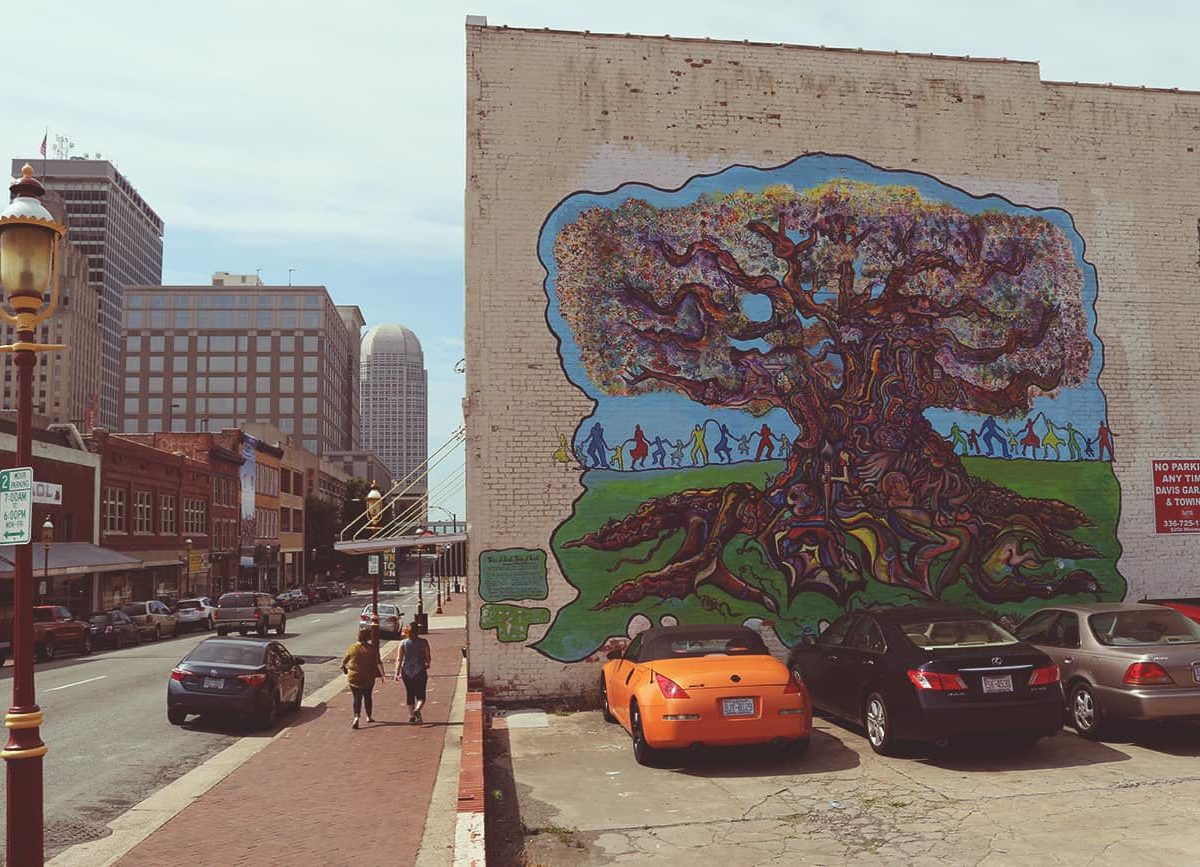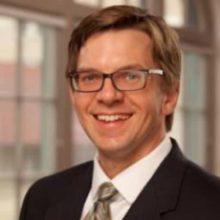

Since 1991, Neighbors for Better Neighborhoods (NBN) has been working in Winston-Salem to improve the city’s most economically disadvantaged neighborhoods and the lives of the residents who call those places home.
For 25 years, NBN has worked from the philosophy that long-term, sustainable improvement in low-income communities must begin with the input and participation of the residents of those communities.
It is what NBN Executive Director Paula McCoy calls “Asset-based Community Development.”
Through its Grassroots Grantmaking program, NBN provides funding for community-lead initiatives, seeding small-scale neighborhood improvement ideas with micro grants of $750 or less. In addition to its micro grants, the organization has increased its grantmaking capacity in recent years and now provides grants of up to $5,000.
Through its Neighbors in Action training, NBN cultivates emerging leaders in neighborhoods across the city. It has developed workshops to educate residents on issues affecting their neighborhoods, including one on increasing female civic engagement in the city.
The organization also organizes working groups, gatherings that pull residents together to do a deep dive into the issues that are impacting their communities. The workshops, facilitated by NBN, are led by community members and topics are driven by the issues those residents want to learn about, to engage with, and to change.
Last summer, NBN launched its first early education working group, a forum to explore ways to engage with the public school system and to promote parent involvement in children’s education from birth to graduation.
“We have working groups around certain issues that residents are interested in,” said McCoy. “So residents are interested in education. They are interested in their children getting the best education they can receive.”
It reflects a growing understanding that for places and people to succeed, every child must be given the appropriate resources and supports, both in the community and in the home.
“We know how important [early childhood education] is in helping to transform neighborhoods,” says McCoy.


According to McCoy, Winston-Salem and Forsyth County are home to the highest concentrations of poverty in North Carolina. It is a reality that adds urgency to the work of organizations like NBN.
The disparities McCoy and her colleagues try to address are not always education-related but can have an impact on a child’s academic success. What can sometimes be mislabeled as a lack of parental involvement or disinterest in a child’s education, may actually be the result of a lack of resources or economic security in a particular household.
“You have situations where parents are working two jobs trying to maintain the house. The wages don’t match up with the cost of living for some households, especially if they have children,” said Kenneth Holly, an NBN community organizer. “As far as transportation is concerned, sometimes parents don’t have the transportation they need to be involved in their school’s programming or going to talk to teachers about where their child is [in their studies].”
“They want what everyone else wants, and that’s good schools. But we help them understand that it starts with them. It starts with being good parents. And being involved and engaged with their children’s education.” — Paula McCoy
In terms of preparing children to succeed in school, Holly says parents in the low-income communities served by Neighbors for Better Neighborhoods want to see their children in the programs they need, but they must also balance the demands of day-to-day life.
“Talking with a lot of parents about early childhood development, from ages zero to six-years-old, a lot of them say they want the best for their children, and that pre-K and early development programs are great for them. But they say it is sometimes hard to get their kids into programs and take care of kids who may be beyond six-years old at the same time,” said Holly.
For many parents, it is a matter of making choices —sometimes difficult choices.
“Most parents that need assistance with economics and financial stability, there’s a lot of programs we have here in our city — but the programs are so scattered that they don’t know where to get [assistance],” said Holly. “Look at the cost of transportation trying to get from one place to the next place to get the resources that you need. You are going to run out of cash to buy groceries or run out of cash to take your child on a field trip so they can extend their education beyond the classroom.”
For Robert Leak, III, the coordinator for the organization’s grassroots grants program, it is an issue of time — that limited resource throughout a parents’ day, when a lack of transportation or the demands of two or more jobs may mean interaction with their children, or participation in school programs may have to be sacrificed to meet basic needs.
Those sacrifices made by parents include childcare. Even when programs are available to assist low-income families, there is the reality of limited programmatic resources and sometimes long waitlists. The result is makeshift childcare, calling on a relative or neighbor to watch a child when a parent is away at work.
“It’s sad cause when a child sees their mother or father working…and [the child] needs their time and they are not giving them that time, it’s pulling them away from that parent love and support,” said Leak.
NBN works with parents to connect them to the resources they need to take a more active role in their child’s education. That begins with informing parents about what resources and supports are available to them and their children.
“The whole education piece, we believe, starts at home,” said McCoy. “We believe that parents are their children’s first and most important teacher.”


The early education working group NBN started last summer and has become a forum to explore ways to engage with the public school system and to promote parent involvement in children’s education, from birth to graduation.
NBN then works with those parents to address the issues they have raised, and to connect them to the resources they need to make change happen.
“They have ideas that we help seed with our small grants program. So if there is an idea, or an initiative that they want to do around education, then we can provide some seed money for that,” said McCoy.
The Parents Education Action Network — the name given to the group by the parents — has started a parent-to-parent mentoring program called Parent Partners. The program trains parents to be coaches and helps other parents become advocates for their children’s education.
And though the program has started small, focusing on one school, the ultimate goal is to scale the model across the city.
“The vision for the long term was that the group could replicate that model at other schools,” said Nakida McDaniel, NBN’s lead community organizer.
McDaniel sees NBN’s education and parent engagement programs as being a supplement to the services available in the local schools, a way to meet the additional needs of families by connecting them to resources outside the school system.
But the ultimate goal is to help parents become more involved with their children’s education. “We want parents to take ownership of the education of their children,” said McDaniel.
“There are things out there that are good for parents, but when parents don’t know about it or can’t readily get their hands on it when they are in a deep crisis, that can become frustrating.” — Kenneth Holly
NBN hopes that by seeding ideas through their Grassroots Grantmaking program, the effort of the education working group will result in tangible improvements in the community.
Previous grants have funded initiatives such as a community lawn service to keep youth employed through the summer, a community-based co-operative laundromat, a youth mentorship program, a summer enrichment program at a local church, and a neighborhood beautification project.
There was also a $750 grant to start a community garden in one neighborhood. In a low-income neighborhood identified as a food desert, where most kids are on free and reduced-price lunch, a community garden not only functions as a vital source for healthy foods, it is also point of pride, a way to build connections between neighbors.
“The community is now gathering around that space,” said Leak, who administers the organizations small grants program. “In October, they are going to have a harvest day for the kids in that neighborhood.”
After 25 years of targeted investments like a community garden and an education working group, McCoy believes the place-based work of organizations like Neighbors for Better Neighborhoods is beginning to get the attention of larger organizations and community leaders. It is bolstered by the spirit of collaboration that has long marked community work in the Twin City.
“Institutions are beginning to get it,” said McCoy. “To understand that if we want to effect change, we can’t do this by ourselves. We have to partner with residents to have some positive outcomes. This whole thing around collaboration has prepared Winston-Salem for this shift in working within communities and using the gifts and talents of residents. This is a wonderful time for Winston-Salem.”
Leak sees it as an investment in the future of neighbors and neighborhoods, in a city and its people.
“When you invest time in your children and in the community you are going to see a positive change, an impact. I believe that.”


